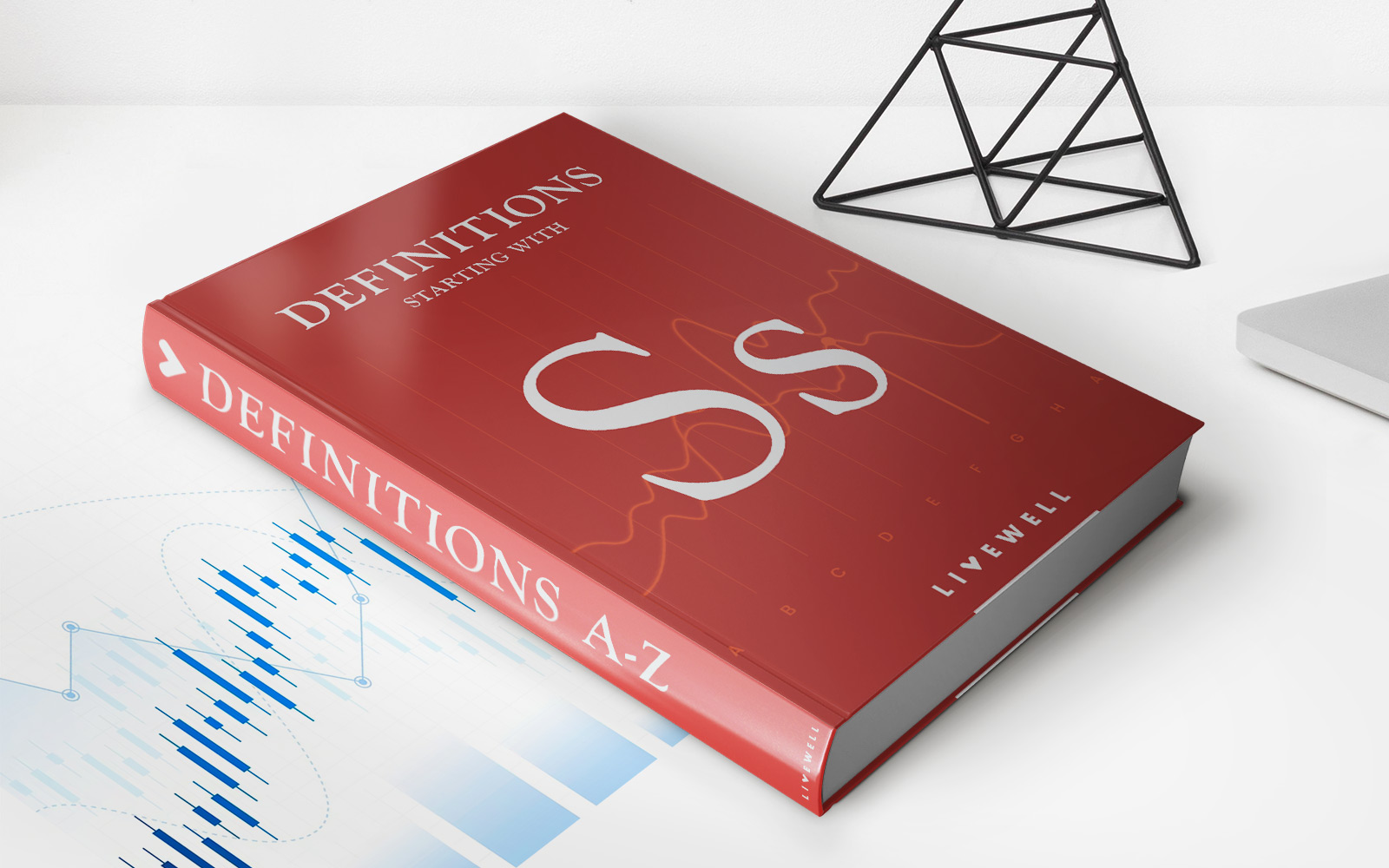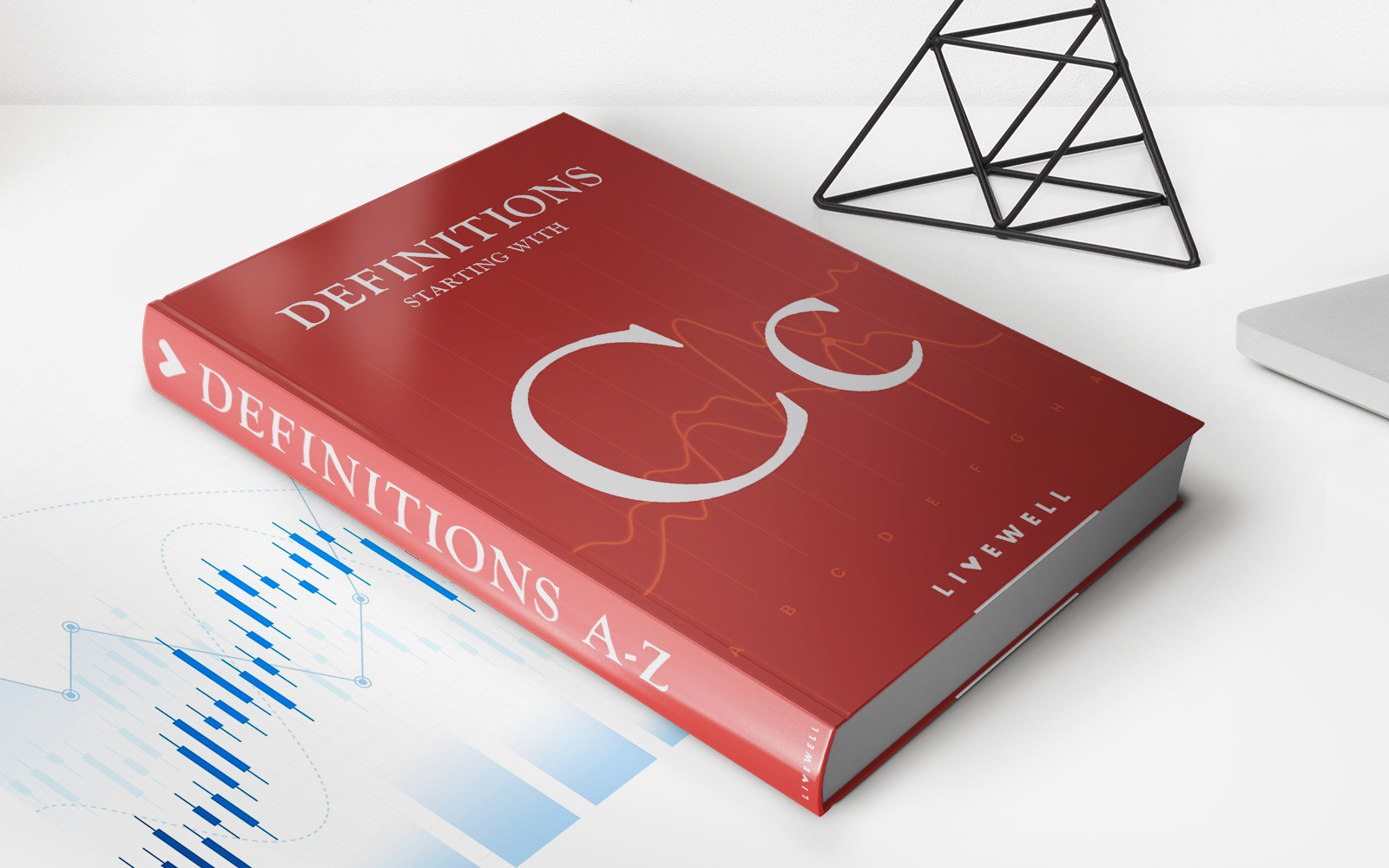

Finance
What Affects The Cost Of Renters Insurance
Published: November 21, 2023
Looking to protect your belongings? Learn about the factors that can impact the cost of renters insurance and how it fits into your overall financial plan.
(Many of the links in this article redirect to a specific reviewed product. Your purchase of these products through affiliate links helps to generate commission for LiveWell, at no extra cost. Learn more)
Table of Contents
Introduction
Renters insurance is an essential investment for anyone living in a rented property. It offers financial protection and peace of mind by covering the cost of replacing personal belongings, liability coverage, and additional living expenses in the event of a covered loss. However, the cost of renters insurance can vary significantly depending on various factors. Understanding these factors can help you make an informed decision and find the best policy that suits your needs and budget.
In this article, we will explore the key factors that can affect the cost of renters insurance. From location to personal factors, we will delve into each aspect to give you a comprehensive understanding of how insurance companies determine the premiums for renters insurance policies.
Whether you are a new renter looking to protect your belongings or a seasoned tenant reviewing your current policy, understanding the factors below is crucial in managing your insurance costs without compromising coverage. So, let’s dive into the details and find out what affects the cost of renters insurance.
Location
One of the primary factors that can impact the cost of renters insurance is the location of your rented property. Insurance companies consider the area’s crime rate, weather patterns, and proximity to certain risks when determining the premiums for renters insurance policies.
The crime rate in your area plays a significant role in determining the cost of renters insurance. If you live in a neighborhood with high crime rates, such as higher rates of theft or vandalism, insurance companies may charge higher premiums to offset the increased risk. On the other hand, if you reside in a safe and low-crime area, you may be eligible for lower insurance premiums.
The weather patterns in your location also affect the cost of renters insurance. If you rent in an area prone to natural disasters such as hurricanes, tornadoes, earthquakes, or floods, you may face higher insurance costs due to the increased risk of damage to your belongings. Insurance companies factor in the likelihood of these events when determining premiums. Conversely, residing in an area with stable weather conditions can help keep your insurance costs lower.
Furthermore, the proximity of your rented property to certain risks can also impact the cost of renters insurance. For example, living near a fire station or having a fire hydrant nearby may result in lower premiums since it reduces the risk of extensive damage caused by fires. In contrast, living in an area with limited fire protection infrastructure may increase your insurance costs.
When obtaining renters insurance, it’s important to provide accurate information about your location to the insurance company. Any changes in your address may require an adjustment to your policy, as different locations can have varying levels of risk. Additionally, if you move to a new area, it’s crucial to reassess your coverage and ensure that it adequately protects you and your belongings based on the risks associated with your new location.
Remember, the location of your rented property directly impacts the cost of renters insurance. Therefore, it’s essential to consider these factors when budgeting for insurance or when selecting a new place to rent. Be sure to account for any potential variations in insurance costs based on the location to make an informed decision and protect yourself financially.
Coverage Limits
The coverage limits you choose for your renters insurance policy are an important factor in determining the cost of your premium. Coverage limits refer to the maximum amount that an insurance company will pay out for a covered loss. Typically, these limits are broken down into two main categories:
- Personal Property Coverage: This refers to the coverage for your personal belongings such as furniture, electronics, clothing, and other valuables. The higher the coverage limit you choose for your personal property, the higher your premium will be. It’s important to accurately assess the value of your belongings and select an appropriate coverage limit that adequately protects your assets.
- Liability Coverage: This coverage protects you in the event that you are found legally responsible for causing injury or property damage to someone else. It helps cover legal fees and damages awarded to the injured party. Higher liability coverage limits often result in higher premiums but offer increased protection and peace of mind.
When considering the coverage limits, it’s crucial to strike a balance between adequately protecting your assets and managing your insurance costs. Overestimating the value of your belongings and opting for high coverage limits can lead to higher premiums. On the other hand, underestimating the value of your belongings and choosing lower coverage limits may leave you financially vulnerable in the event of a loss.
Insurance companies may offer different coverage options, allowing you to customize your policy based on your needs. Some policies may offer replacement cost coverage, which provides compensation for the full cost of replacing damaged or stolen items, while others may offer actual cash value coverage, which takes into account depreciation when determining the payout. The type of coverage you choose can also impact the cost of your premium.
It’s important to review and update your coverage limits periodically, especially if you acquire new valuable items or make significant changes to your lifestyle. This ensures that your coverage remains adequate and up-to-date with your belongings and personal circumstances.
Remember, the coverage limits you choose for your renters insurance directly affect the cost of your premium. By carefully assessing your belongings, considering your liability needs, and selecting the appropriate coverage limits, you can strike a balance between protection and affordability.
Deductibles
A deductible is the amount you agree to pay out-of-pocket before your renters insurance coverage kicks in to cover the remaining costs of a claim. The deductible amount you choose can have an impact on the cost of your renters insurance policy.
Typically, insurance companies offer a range of deductible options, such as $500, $1,000, or even higher. The higher the deductible you choose, the lower your premium will be. This is because a higher deductible shifts more of the financial responsibility to you in the event of a claim, reducing the potential risk and cost for the insurance company.
Before selecting a deductible amount, it’s important to consider your financial situation and ability to pay that amount out-of-pocket if a loss occurs. While a higher deductible may result in lower premiums, it also means you will need to cover a larger portion of the claim before receiving insurance reimbursement. It’s crucial to strike a balance between choosing a deductible that offers you affordable premiums while also being manageable in the event of a loss.
Additionally, it’s worth noting that not all types of claims will be subject to a deductible. For example, liability claims typically do not have a deductible, as the insurance company covers the entire cost of legal fees and damages awarded to a third party if you are found responsible for an incident.
Consider your personal risk tolerance and financial situation when determining the deductible for your renters insurance policy. If you are comfortable with assuming more financial responsibility in the event of a claim, opting for a higher deductible can help lower your premium. However, if you prefer a lower out-of-pocket expense at the time of a loss, choosing a lower deductible may be more suitable for you, despite potentially higher premiums.
Be sure to discuss deductible options with your insurance provider and consider how different deductible amounts will affect your overall insurance costs. By carefully evaluating your financial situation and risk tolerance, you can select a deductible that strikes the right balance for your budget and coverage needs.
Type of Coverage
The type of coverage you choose for your renters insurance policy can also impact the cost of your premium. Renters insurance typically offers two main types of coverage: actual cash value (ACV) and replacement cost coverage.
Actual Cash Value (ACV) coverage takes into account the depreciation of items when determining the payout for a claim. Under this type of coverage, the insurance company will reimburse you for the current market value of your belongings, taking into consideration factors such as age and condition. ACV coverage generally has lower premiums compared to replacement cost coverage.
On the other hand, Replacement Cost Coverage ensures that you are reimbursed for the full cost of replacing your damaged or stolen belongings, without factoring in depreciation. This coverage is generally more expensive in terms of premiums because it offers more comprehensive protection.
When deciding between ACV and Replacement Cost Coverage, it’s important to consider the value of your belongings and your budget. If you have valuable items or prefer the peace of mind that comes with full replacement cost coverage, you may opt for the higher premium of replacement cost coverage. However, if you are comfortable with the potential depreciation deductions in the event of a claim, ACV coverage can provide more affordability.
It’s worth noting that some insurance providers offer additional coverage options that you can add to your policy. These optional coverages may include additional protection for high-value items such as jewelry, collectibles, or electronics. Adding these coverages, known as endorsements or floaters, can increase your premium but provide more specific and comprehensive protection for your most valuable belongings.
When selecting the type of coverage for your renters insurance, carefully review the options available from different insurance companies. Consider the value of your belongings, your budget, and your personal preferences regarding coverage and depreciation. By choosing the most suitable type of coverage, you can ensure that you have the right level of protection for your needs while managing your insurance costs.
Personal Factors
When determining the cost of renters insurance, insurance companies also take into account personal factors that can influence the level of risk associated with insuring an individual. These personal factors can vary from one insurer to another, but some common factors that may affect the cost of your premium include:
- Credit Score: Your credit history plays a role in determining your premium for renters insurance. Insurance companies view individuals with higher credit scores as more responsible and less risky, leading to potential lower premiums. On the other hand, individuals with lower credit scores may be subject to higher premiums.
- Claims History: Your past claims history can impact the cost of your renters insurance. If you have a history of frequent claims, insurance companies may view you as a higher risk and increase your premiums accordingly.
- Marital Status: Some insurance companies may consider marital status when determining premiums. Married individuals may benefit from lower rates, as insurance companies often view married couples as more stable and less likely to make claims.
- Age: Age can also impact the cost of renters insurance. Younger renters may be charged higher premiums due to the perception of higher risk associated with their age group.
- Occupation: Certain occupations may be seen as riskier than others, which can influence the cost of renters insurance. For example, individuals working in professions with higher-risk environments, such as firefighters or construction workers, may face higher premiums.
- Smoking Habits: Smoking can increase the risk of a fire-related incident, which may lead to higher renters insurance premiums for smokers compared to non-smokers.
It’s important to note that not all insurance companies consider the same personal factors, and each insurer may weigh these factors differently when determining premiums. Therefore, it’s advisable to obtain quotes from multiple insurance companies to compare rates and find the most cost-effective coverage for your specific situation.
While you cannot change certain personal factors such as your age or credit score, you can still take steps to minimize the impact they have on your renters insurance premium. This includes maintaining a good credit score, maintaining a claims-free history, and adopting safety measures in your rented property such as installing smoke detectors or security systems.
Considering personal factors and taking steps to mitigate risk can help you find affordable renters insurance coverage while ensuring that you are adequately protected.
Credit Score
One of the significant personal factors that can impact the cost of your renters insurance premium is your credit score. Insurance companies often use credit-based insurance scores as a way to assess the risk associated with insuring an individual. Your credit score reflects your creditworthiness and financial responsibility, providing insight into how likely you are to file a claim.
Insurance companies believe that individuals with higher credit scores are more likely to be responsible and make timely premium payments. As a result, they may view individuals with higher credit scores as lower risk and offer them lower renters insurance premiums. Conversely, individuals with lower credit scores may be considered higher risk, leading to higher insurance premiums.
It’s important to note that insurance companies use credit-based insurance scores, which are different from traditional credit scores used by lenders. Factors such as your payment history, outstanding debts, length of credit history, and recent applications for credit are taken into consideration when determining your credit-based insurance score.
If you have a good credit score, it’s essential to leverage it to your advantage by obtaining quotes from insurance companies that consider credit scores when calculating premiums. By doing so, you can ensure that you are getting the most competitive rates for your renters insurance.
If your credit score is not ideal, there are steps you can take to improve it over time. Make an effort to pay your bills on time, reduce outstanding debts, and avoid making unnecessary credit applications. By demonstrating responsible financial behavior, you can gradually improve your credit score and potentially qualify for lower renters insurance premiums in the future.
Keep in mind that not all insurance companies consider credit scores when determining renters insurance premiums. If your credit score is poor or you have no credit history, there may be insurance providers who offer policies without taking credit into account. It’s always advisable to shop around and compare quotes from different insurers to find the best coverage option for your specific situation.
While your credit score may not be within your immediate control, it’s important to be aware of its potential impact on your renters insurance premium. By understanding this factor, you can work towards improving your credit score and take steps to find the most affordable renters insurance coverage.
Claims History
Your claims history is a significant personal factor that insurance companies consider when determining the cost of your renters insurance premium. Insurance providers look at your past claims history to assess the likelihood of you filing future claims.
If you have a history of frequent claims or have made multiple significant claims in the past, insurance companies may view you as a higher-risk policyholder. This perception is due to the assumption that individuals who have filed claims in the past are more likely to do so in the future, which can result in increased costs for the insurer. As a result, your premiums may be higher to compensate for the perceived increased risk.
On the other hand, if you have a claims-free history or have only filed infrequent and minor claims, insurance companies may consider you a lower-risk policyholder. This can lead to lower premiums as the insurer perceives a reduced likelihood of future claims.
When applying for renters insurance, it’s crucial to provide accurate information regarding your claims history. This includes disclosing any previous claims you have made, even if they were filed with a different insurance company. Failing to disclose previous claims can result in coverage disputes or even policy cancellation in the event of a claim.
If you have a history of claims, it’s important to be aware of the potential impact on your renters insurance premium. However, it’s worth noting that not all claims are treated equally. If your claims history includes multiple claims related to a specific event, such as water damage resulting from a plumbing issue, insurance providers may include it as a single claim in their assessment.
While you cannot change your past claims history, you can take steps to mitigate future losses and minimize the impact on your insurance premiums. By being proactive in maintaining your rented property, such as addressing maintenance issues promptly, installing safety features, and taking precautions against theft and other risks, you can reduce the likelihood of future claims and potentially lower your renters insurance premium.
It’s important to remember that claims history is just one of several factors insurance companies consider when determining premiums. Shopping around and comparing quotes from different insurers can help you find the most competitive rates based on your specific claims history and other personal factors.
Understanding the impact of your claims history on your renters insurance premium allows you to make informed decisions when managing your insurance costs and finding the right coverage.
Safety Features
The presence of safety features in your rented property can have an impact on the cost of your renters insurance premium. Insurance companies consider the level of safety and security measures in place when assessing the risk associated with insuring a property and its occupants.
If your rented property has certain safety features installed, insurance companies may offer discounts or lower premiums as these features can help mitigate the risk of property damage or theft. Some common safety features that can influence your renters insurance premium include:
- Smoke Detectors and Fire Alarms: Having working smoke detectors and fire alarms can help alert you to potential fires and aid in early detection. Insurance companies often offer discounts for properties equipped with these safety devices.
- Security Systems: Installing a burglar alarm system, surveillance cameras, or other security measures can act as a deterrent against theft and break-ins. Properties with comprehensive security systems may be eligible for lower insurance premiums.
- Deadbolt Locks: Strong deadbolt locks on doors and windows can enhance the security of your rented property. Insurance companies may offer discounts for properties with high-quality locks.
- Sprinkler Systems: If your rented property is equipped with a fire sprinkler system, it can provide an additional layer of protection against fire damage. Insurance providers may consider this feature when determining your premium.
- Gated Community or On-Site Security: Living in a gated community or renting a property with on-site security personnel can reduce the risk of theft and other crimes. Insurance companies may factor these safety measures into your premium calculation.
It’s important to check with your insurance provider regarding the specific safety features that can potentially lower your renters insurance premium. They can provide you with a list of approved safety features and any associated discounts available.
Keep in mind that while safety features can help reduce your insurance premium, it’s always beneficial to prioritize your safety and well-being. Installing these features not only makes your rented property more secure but also provides peace of mind for you and your belongings.
When looking for a rental property, consider properties with existing safety features or discuss with your landlord the possibility of adding or upgrading certain safety measures. By taking steps to enhance the security of your rented property, you not only protect yourself and your belongings but may also enjoy potential cost savings on your renters insurance premium.
Discounts
When it comes to renters insurance, there are various discounts available that can help lower the cost of your premium. Insurance companies offer these discounts as incentives to encourage policyholders to implement certain measures or meet specific criteria that reduce the overall risk. Understanding and taking advantage of these discounts can result in considerable savings on your renters insurance.
Here are some common discounts that you may be eligible for:
- Multi-Policy Discount: Many insurance providers offer a discount if you bundle your renters insurance with another policy, such as an auto insurance policy. This can lead to lower premiums for both policies.
- Security System Discount: Installing a security system, such as a burglar alarm or surveillance cameras, can help deter theft and reduce the risk of property damage. Insurance companies often provide discounts for properties with comprehensive security measures in place.
- Smoke Detector Discount: Having working smoke detectors and fire alarms in your rented property can lead to lower insurance premiums. Insurance providers may offer discounts for properties equipped with these safety devices.
- Claims-Free Discount: Maintaining a claims-free history can qualify you for a discount on your renters insurance premium. If you have not filed any claims in a specified period, you may enjoy lower rates as a reward for your responsible behavior.
- Occupational Discount: Certain professions, such as teachers or firefighters, may be eligible for occupational discounts. Insurance companies consider individuals in these occupations to be lower risk, potentially resulting in lower premiums.
- Age-Related Discount: Some insurance providers offer discounts for individuals who are above a certain age. If you meet the age criteria, you may be eligible for a reduction in your renters insurance premium.
- Non-Smoker Discount: Insurance companies often view non-smokers as lower risk due to the reduced risk of fire-related incidents. As a result, non-smokers may be eligible for lower renters insurance premiums.
Check with your insurance provider to determine which discounts are available and applicable to your situation. They can guide you through the process of applying for these discounts and assist in finding the most cost-effective policy for you.
Remember, discounts can vary depending on the insurance company, so it’s essential to compare quotes from multiple insurers to find the best coverage at the most competitive rates. Taking advantage of the available discounts can significantly reduce the overall cost of your renters insurance policy.
Additional Coverage Options
When purchasing renters insurance, you have the option to add additional coverage to your policy. These optional coverages can provide added protection for specific items or incidents that may not be fully covered under the standard policy. While these additional coverages can increase the cost of your premium, they offer valuable protection and peace of mind in various situations.
Here are some common additional coverage options to consider:
- Valuable Item Coverage: If you own high-value items such as jewelry, fine art, or collectibles, it’s important to ensure that they are adequately protected. Adding valuable items coverage to your renters insurance policy can provide increased coverage limits and protection specifically tailored to these valuable possessions.
- Flood Insurance: Standard renters insurance policies typically do not cover damage caused by floods. If you live in a flood-prone area, adding a separate flood insurance policy can provide coverage for property damage and loss caused by flooding.
- Earthquake Insurance: Similar to flood insurance, earthquake coverage is often not included in standard renters insurance policies. If you reside in an earthquake-prone area, obtaining an additional earthquake insurance policy can help protect your belongings and property against earthquake-related damages.
- Identity Theft Coverage: Identity theft is a growing concern, and having coverage for identity theft expenses can provide financial protection in case of fraudulent activities. Adding identity theft coverage to your renters insurance policy can help cover expenses related to restoring your identity, such as legal fees and lost wages.
- Loss of Use Coverage: In the event that your rented property becomes uninhabitable due to a covered loss, loss of use coverage can help cover the additional living expenses you may incur, such as hotel stays or temporary rentals, while your residence is being repaired or rebuilt.
- Pet Liability Coverage: If you have pets, it’s important to consider adding pet liability coverage to your renters insurance policy. This can provide protection in case your pet causes injury to others or damages someone else’s property.
Before adding any additional coverage options to your policy, it’s essential to evaluate your needs and assess the potential risks you may face. Consider the value of your belongings, your location, and your lifestyle when deciding which additional coverages to add. Discussing these options with your insurance provider can help you determine the most appropriate and cost-effective coverage for your specific situation.
Remember, additional coverage options can be a valuable investment, providing protection beyond the standard policy. By carefully considering your needs and prioritizing the most relevant coverage options, you can ensure that you have comprehensive protection against potential risks.
Conclusion
Renters insurance is a crucial investment for anyone living in a rented property, providing financial protection and peace of mind in the face of unexpected events. However, the cost of renters insurance can vary based on several factors that insurance companies consider when determining premiums.
Location plays a vital role in determining the cost of renters insurance. High crime rates or areas prone to natural disasters can result in higher premiums. Coverage limits and deductibles also impact costs, where higher limits and lower deductibles usually lead to higher premiums. The type of coverage, such as actual cash value or replacement cost, also affects the premium you pay.
Personal factors, including credit score, claims history, age, and occupation, can influence the cost of your premium. Having a good credit score, maintaining a claims-free history, and adopting safety measures can help lower insurance costs. Additionally, taking advantage of discounts and considering additional coverage options tailored to your needs can provide comprehensive protection while managing costs.
Understanding these factors and making informed decisions when choosing renters insurance can help you find the right balance between affordability and adequate coverage. It’s important to review your policy periodically to ensure it aligns with any changes in your situation or needs.
When shopping for renters insurance, it’s recommended to obtain quotes from multiple insurers to compare rates and coverage options. Insurance companies may weigh the factors differently, leading to varying premium prices for the same coverage.
Ultimately, renters insurance is an essential investment that protects your personal belongings, provides liability coverage, and offers additional living expenses in the event of a covered loss. By considering all the factors above and finding the right policy for your needs, you can safeguard your belongings and gain peace of mind knowing you have financial protection in place.














